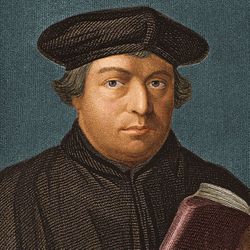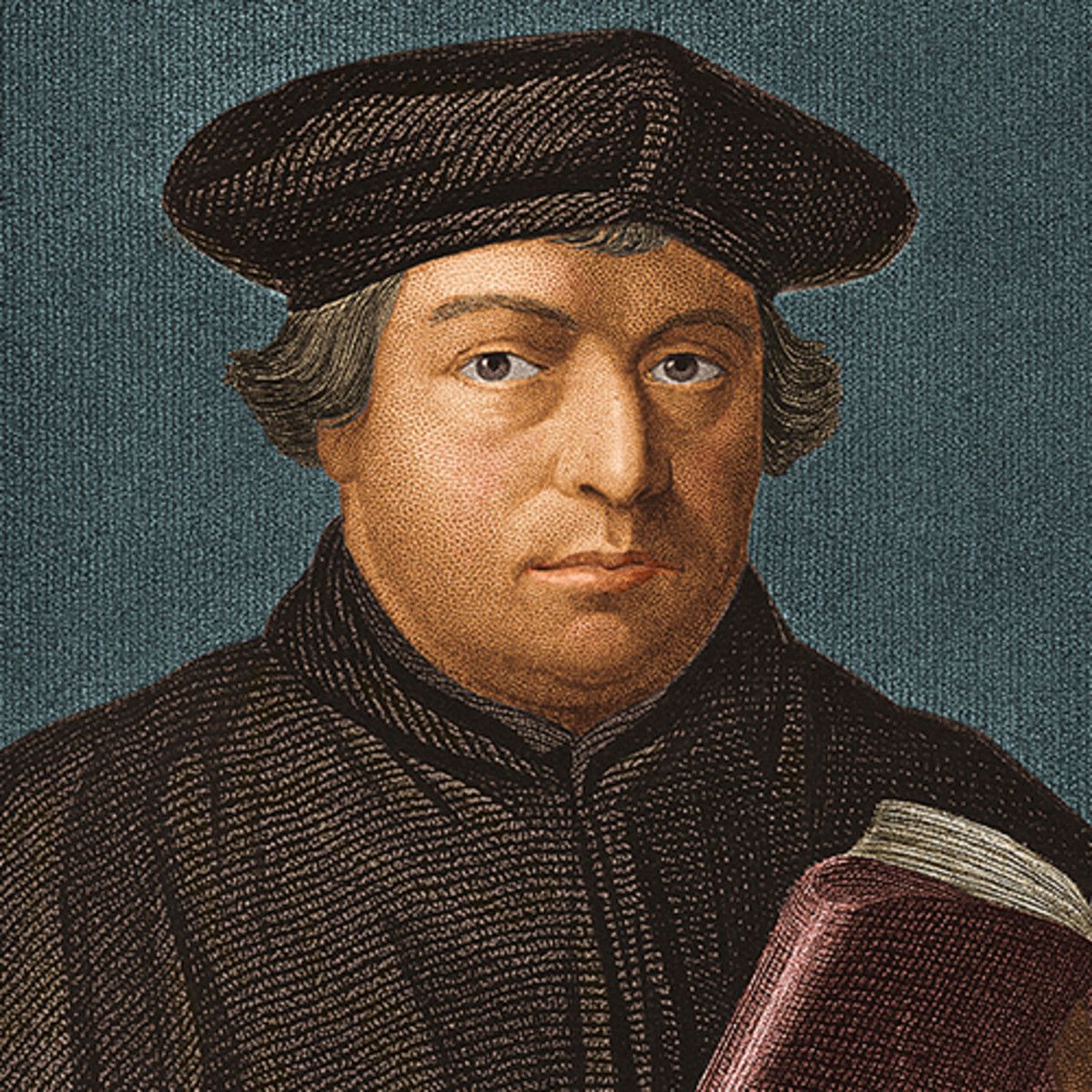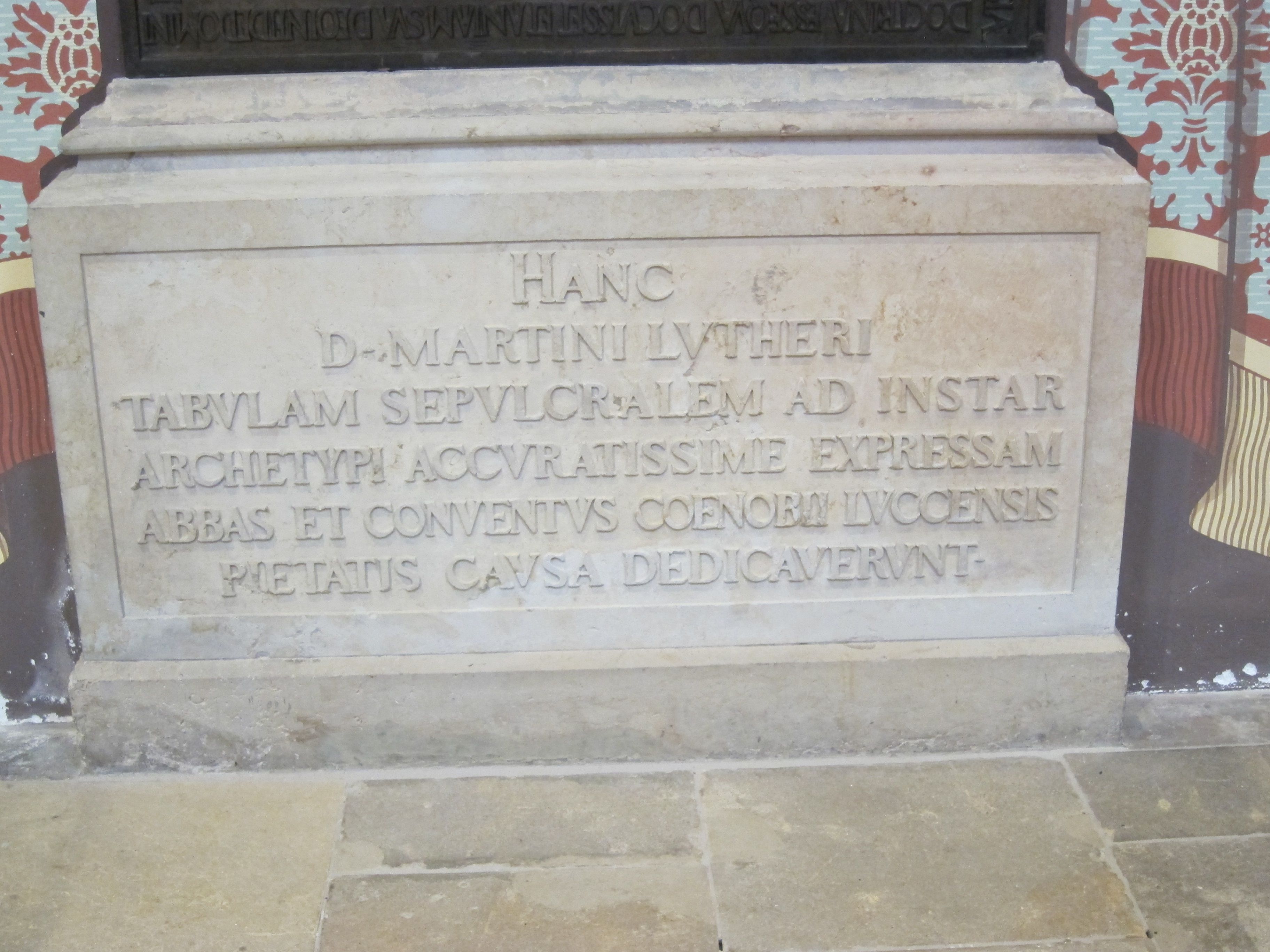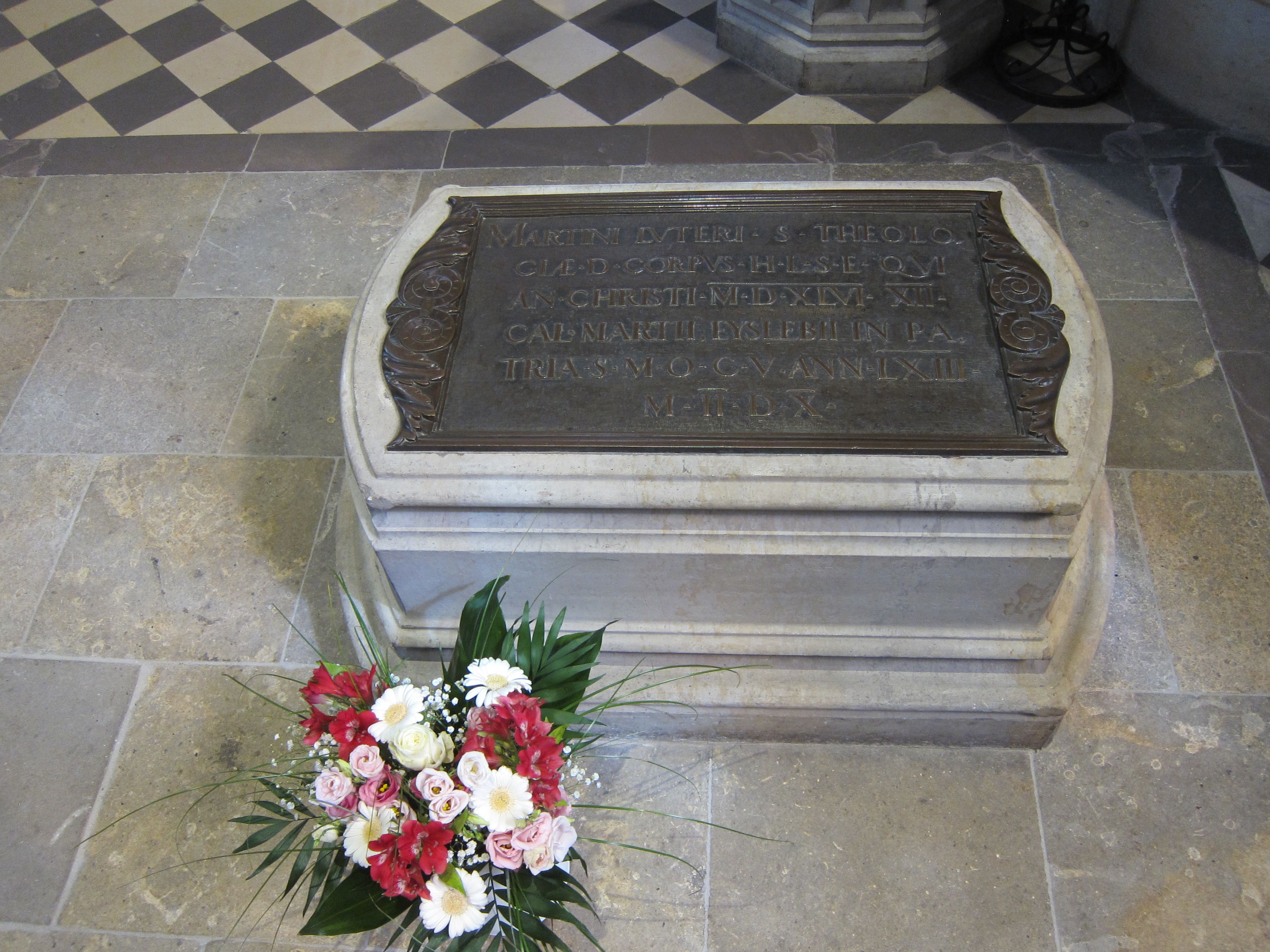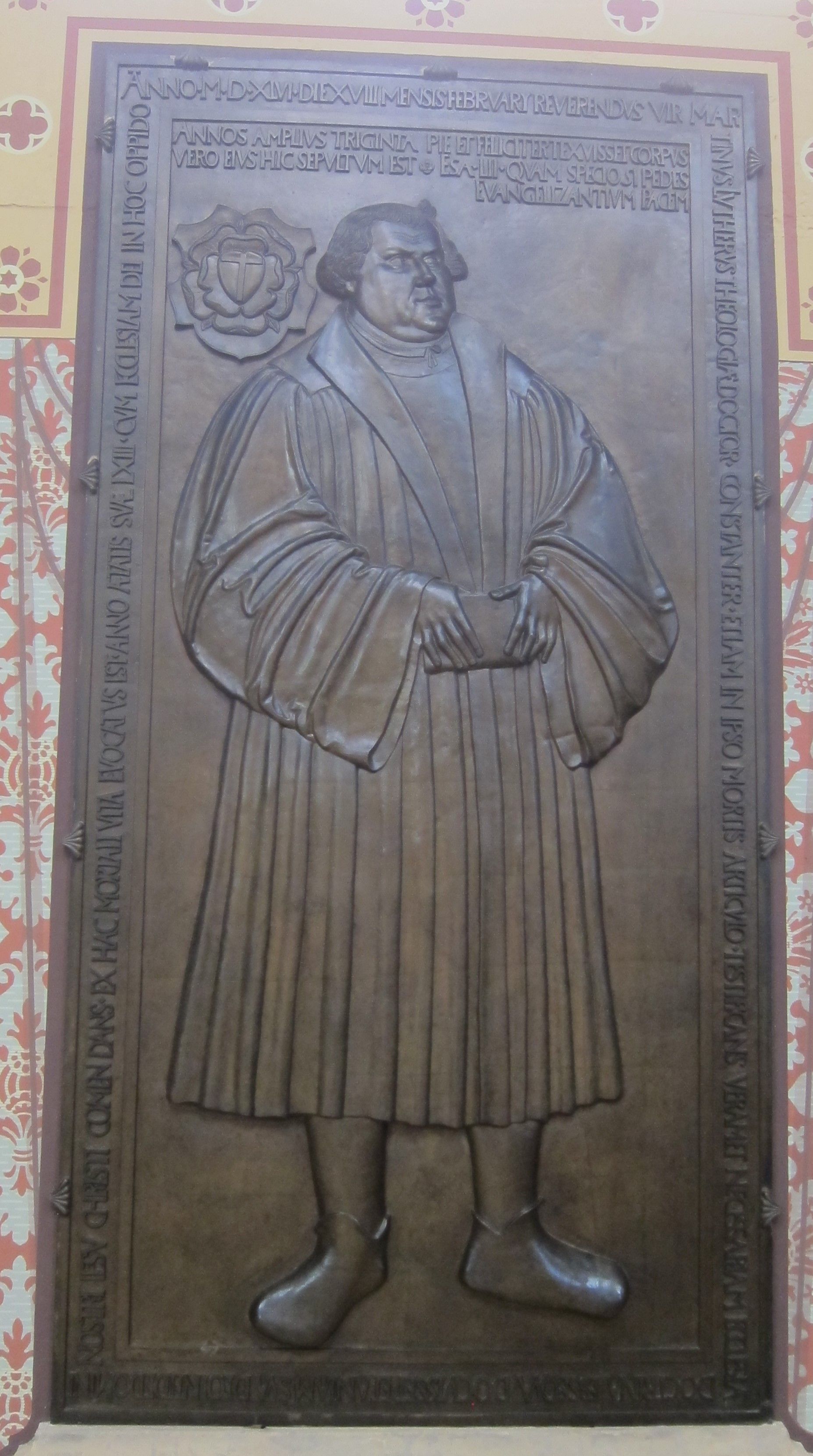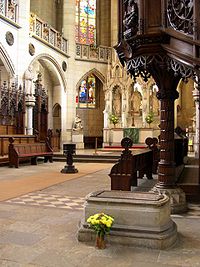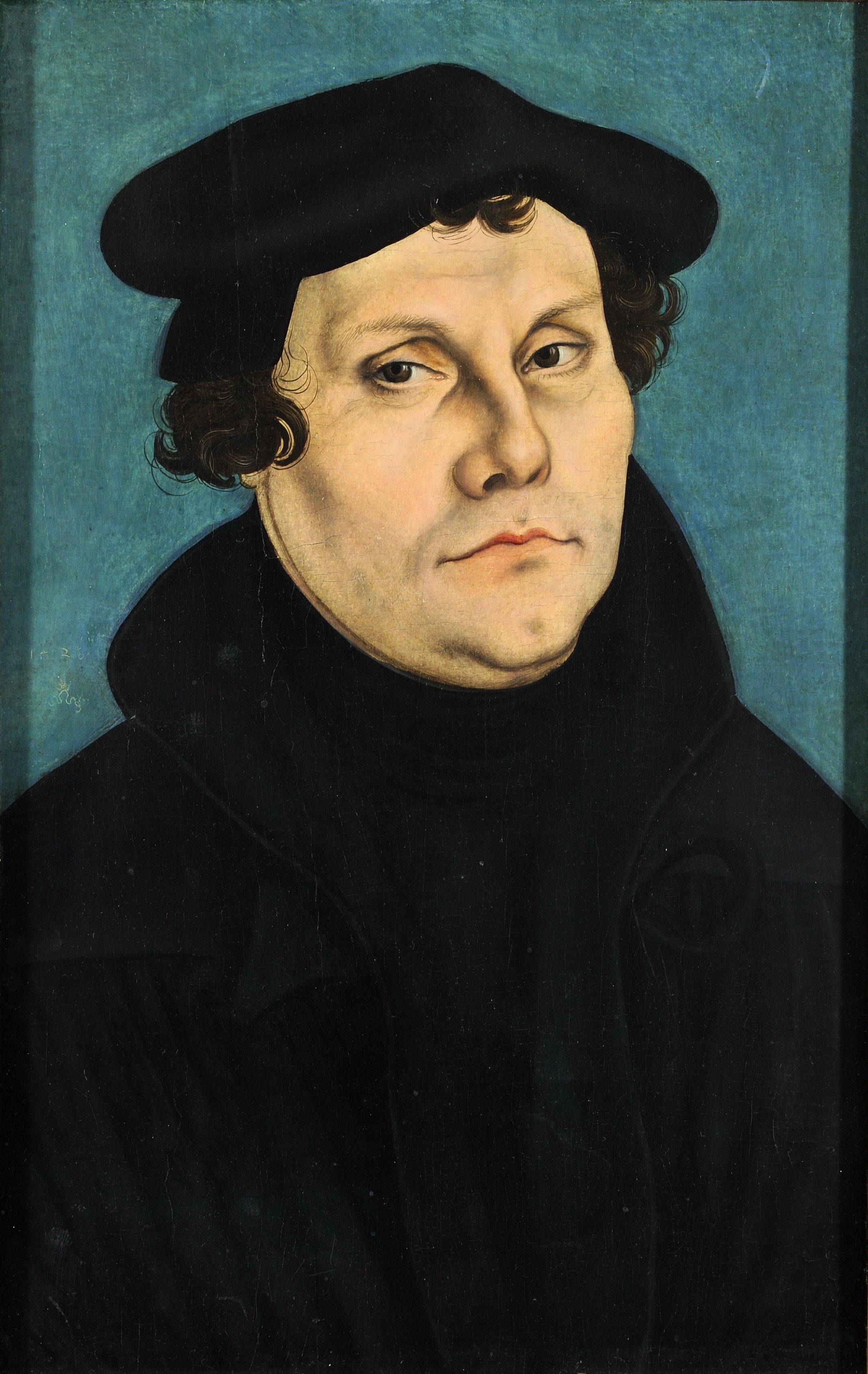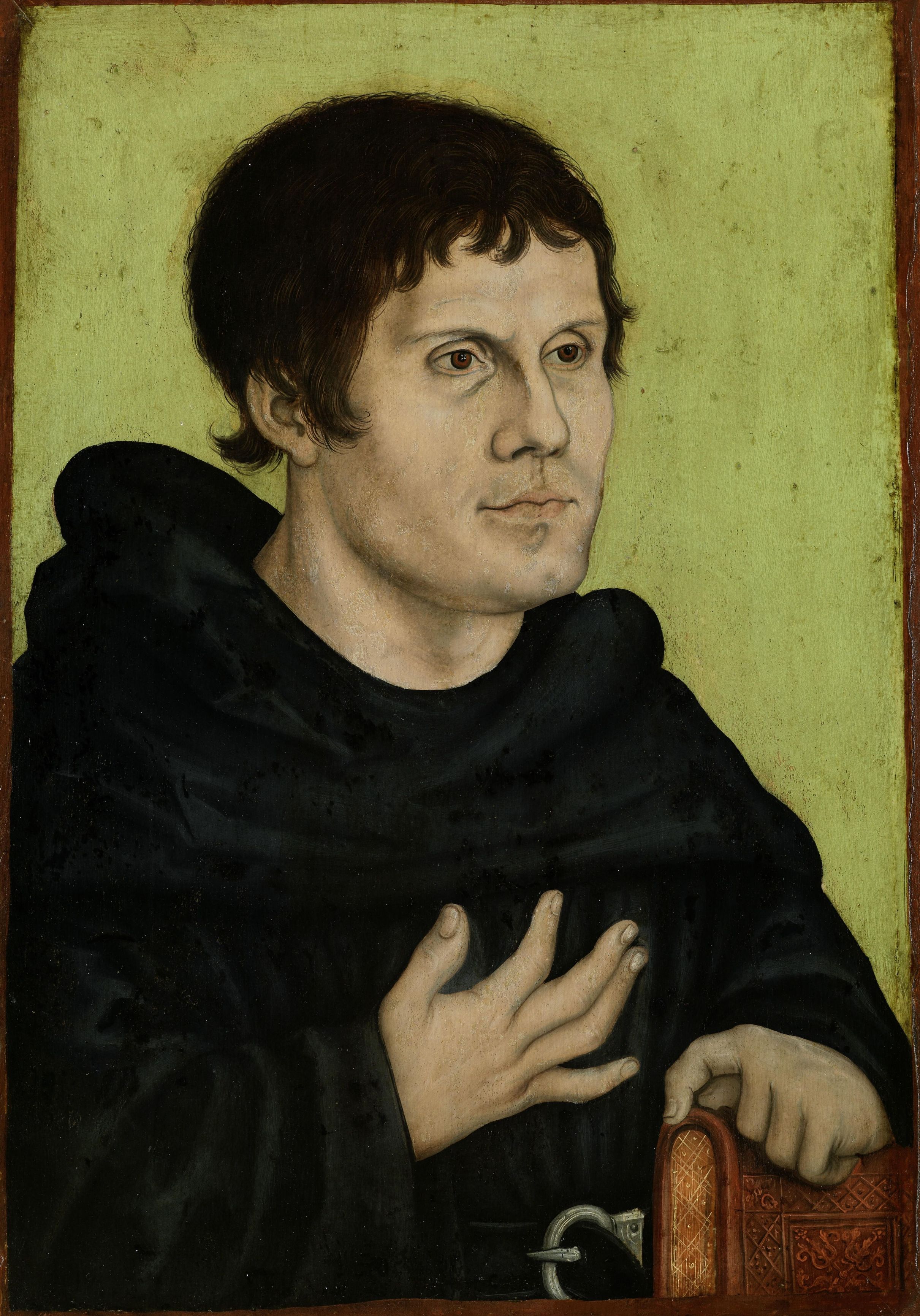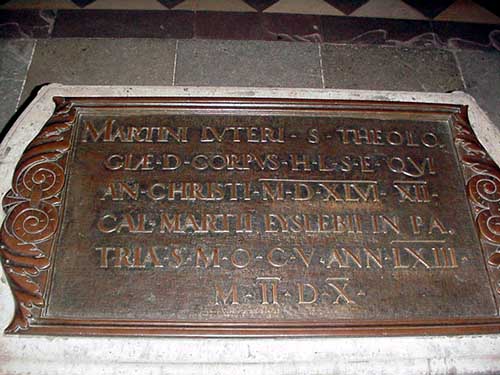Religious Reformer. Martin Luther was born into the growing middle class of sixteenth-century Saxony. His father, Hans, was a miner from the peasant class who eventually purchased several mines himself. Hans wanted all of his children to capitalize and expand on his success. Martin, in particular, was to become a lawyer. This desire is almost certainly what led his parents (Hans and Margarethe) to enroll him in several Latin schools – first in Mansfeld, then Magdeburg, and then Eisenach.
At age 17 (in 1501), Luther enrolled at the University of Erfurt to complete his law studies. He graduated in 1505 with a master's degree. At this point in his life, he was drawn to philosophy and theology to help answer looming questions about God, his shortcomings, his value, and self-worth. He would later recount that on a trip back to Erfurt from his parents' house in 1505; he was nearly struck by lightning while caught in a storm on the road. Having recently lost two young friends to illness – in an existential crisis of his own – Luther claimed that he made a pledge to St. Anne that if he lived, he would become a monk. Upon returning to Erfurt, he enrolled in the monastic Order of Saint Augustine.
His father, Hans, was furious. He believed Martin to have wasted his education and exchanged a promising future for a bleak, monotonous one. While Luther briefly thrived on the demanding regimen of the Augustinians, he soon fell prey again to the same angst that had plagued him earlier. His supervisor, Johann von Staupitz, recognized Luther's industrious nature and tried to address his restlessness by assigning him more work. Luther was ordered to prepare for an academic career. In 1507, he was ordained into the priesthood by the Bishop of Brandenburg. In 1508, he was appointed to teach theology at the newly-formed University of Wittenberg. That same year, he received a bachelor's degree in biblical studies, followed by a bachelor's degree in Lombard's "Sentences" in 1509. By 1512, he became a Doctor of Theology and succeeded Staupitz as Wittenberg University's chair of theology – a position he would hold for the rest of his life.
The events that would launch Luther to fame, however, began in 1517. That year, in the days leading up to All Saints' Day (November 1), Luther either posted ninety-five theses to the door of the Castle Church in Wittenberg, mailed them to the Archbishop of Mainz, or both. What matters most is that at the dawn of the age of publishing – aided by the typesetting press invented years earlier by Johannes Gutenberg – Luther's theses were translated from Latin to German and began to be shared broadly. The theses were narrow in scope (dealing with the promotion and sale of indulges by papal agents in Germany), but they were the kernel of theological criticism that would explode into the movement known as the Protestant Reformation.
Over successive years, attempts were made to discourage Luther from public criticism of the sale of indulgences. A heresy case was being prepared against him in Rome. For three days in 1518, Cardinal Thomas Cajetan squared off with Luther in Augsburg over the right of the pope to issue such indulgences. No progress was made. In 1519, papal nuncio Karl von Miltitz met with Luther and won some concessions to keep the debate within bounds. Particularly, he found fault with the salesmanship of Johannes Tetzel, the lead man in indulgence sales throughout Germany. But later that year, the academic Johannes Eck squared off in a debate against Luther and fellow Wittenberg professor Andreas Karlstadt at Leipzig. This debate played an important role in expanding the public controversy from being centered on indulgences to touching on the authority of the pope, the infallibility of church councils, etc. Luther continued to assert the canonical Scriptures as primary.
In 1520, Pope Leo X issued a public statement ("papal bull") warning that if Luther did not recant parts of his writings, he would be excommunicated in 60 days. The bull arrived in Wittenberg after the deadline, but that didn't matter: Luther's response was to publicly burn it. He was excommunicated by Leo X on January 3, 1521.
Responsibility to act on the papal proclamations fell to secular authorities. Elector Frederick III, "the Wise" (Prince of Saxony), had convinced Charles V (Holy Roman Emperor) that Luther was owed the right to legal proceedings within the borders of Germany. The two rulers agreed that the matter would be taken up at the next Imperial Diet in Worms, Germany (1521). Luther would be guaranteed safe passage to and from the meeting.
On April 17 and 18, 1521, Luther was questioned by Johannes Eck in front of the Holy Roman Emperor, various electors, and representatives of the Church. Asked to renounce his writings wholesale, Luther first asked for time to consider his answer. He was excused to appear again later. The next day, Luther gave a qualified no: "I am bound by the Scriptures I have quoted, and my conscience is captive to the Word of God. I cannot and will not recant anything since it is neither safe nor right to go against conscience. May God help me. Amen."
In response to this impasse, Charles V issued a proclamation saying that Luther was a recognized heretic, banning his writings and ordering him to be arrested and turned over to imperial control. Frederick the Wise, concerned that Luther would be kidnapped and killed on his return to Wittenberg from Worms, arranged for Luther to be kidnapped by his own agents and hidden away in the Wartburg Castle. There, Luther stayed incognito for almost a year before returning to Wittenburg. During his time at the Wartburg, Luther translated the New Testament into common German and forwarded his copy to publishers. He also wrote several tracts and pamphlets, expanding the controversy and getting to the heart of the theological difference between himself and Rome: the question of papal authority, the nature of salvation and good works, monastic vows, etc.
In 1522, Luther discreetly returned to Wittenberg. He began preaching a series of sermons to address the open rebellion against civil authority that had popped up in his absence. He also began some theological reforms within the Church.
In 1523, Luther married the escaped former nun Katharina von Bora. Together, they would have six children: Johannes, Elizabeth, Magdalena, Martin (Jr.), Paul, and Margarete. They would also raise four orphaned children, including Katharina's nephew, Fabian.
From 1523, Luther settled into the role of a family man and chief educator in the Reformation movement. In the late 1520s, while participating in the visitation of Reformation-minded churches throughout Germany, Luther witnessed the extreme lack of biblical knowledge among both clergy and laity. So, in 1529, he wrote both his small and large catechisms; the small catechisms were for men to teach their families in the home, and the large catechisms were for the education of the clergy.
Luther would continue to be a preacher and chief adjudicator of the Reformation in Germany for the rest of his life. He is surrounded by some modern controversy, especially because of irascible comments made against Jews in sermons preached in his later years.
In 1546, while in Mansfeld to mediate a conflict related to his siblings' claims on copper mining there – and involving all four noble rulers of Mansfeld – Luther began to experience chest pains. He died at about 2:45 a.m. on February 18, 1546, at sixty-two.
Religious Reformer. Martin Luther was born into the growing middle class of sixteenth-century Saxony. His father, Hans, was a miner from the peasant class who eventually purchased several mines himself. Hans wanted all of his children to capitalize and expand on his success. Martin, in particular, was to become a lawyer. This desire is almost certainly what led his parents (Hans and Margarethe) to enroll him in several Latin schools – first in Mansfeld, then Magdeburg, and then Eisenach.
At age 17 (in 1501), Luther enrolled at the University of Erfurt to complete his law studies. He graduated in 1505 with a master's degree. At this point in his life, he was drawn to philosophy and theology to help answer looming questions about God, his shortcomings, his value, and self-worth. He would later recount that on a trip back to Erfurt from his parents' house in 1505; he was nearly struck by lightning while caught in a storm on the road. Having recently lost two young friends to illness – in an existential crisis of his own – Luther claimed that he made a pledge to St. Anne that if he lived, he would become a monk. Upon returning to Erfurt, he enrolled in the monastic Order of Saint Augustine.
His father, Hans, was furious. He believed Martin to have wasted his education and exchanged a promising future for a bleak, monotonous one. While Luther briefly thrived on the demanding regimen of the Augustinians, he soon fell prey again to the same angst that had plagued him earlier. His supervisor, Johann von Staupitz, recognized Luther's industrious nature and tried to address his restlessness by assigning him more work. Luther was ordered to prepare for an academic career. In 1507, he was ordained into the priesthood by the Bishop of Brandenburg. In 1508, he was appointed to teach theology at the newly-formed University of Wittenberg. That same year, he received a bachelor's degree in biblical studies, followed by a bachelor's degree in Lombard's "Sentences" in 1509. By 1512, he became a Doctor of Theology and succeeded Staupitz as Wittenberg University's chair of theology – a position he would hold for the rest of his life.
The events that would launch Luther to fame, however, began in 1517. That year, in the days leading up to All Saints' Day (November 1), Luther either posted ninety-five theses to the door of the Castle Church in Wittenberg, mailed them to the Archbishop of Mainz, or both. What matters most is that at the dawn of the age of publishing – aided by the typesetting press invented years earlier by Johannes Gutenberg – Luther's theses were translated from Latin to German and began to be shared broadly. The theses were narrow in scope (dealing with the promotion and sale of indulges by papal agents in Germany), but they were the kernel of theological criticism that would explode into the movement known as the Protestant Reformation.
Over successive years, attempts were made to discourage Luther from public criticism of the sale of indulgences. A heresy case was being prepared against him in Rome. For three days in 1518, Cardinal Thomas Cajetan squared off with Luther in Augsburg over the right of the pope to issue such indulgences. No progress was made. In 1519, papal nuncio Karl von Miltitz met with Luther and won some concessions to keep the debate within bounds. Particularly, he found fault with the salesmanship of Johannes Tetzel, the lead man in indulgence sales throughout Germany. But later that year, the academic Johannes Eck squared off in a debate against Luther and fellow Wittenberg professor Andreas Karlstadt at Leipzig. This debate played an important role in expanding the public controversy from being centered on indulgences to touching on the authority of the pope, the infallibility of church councils, etc. Luther continued to assert the canonical Scriptures as primary.
In 1520, Pope Leo X issued a public statement ("papal bull") warning that if Luther did not recant parts of his writings, he would be excommunicated in 60 days. The bull arrived in Wittenberg after the deadline, but that didn't matter: Luther's response was to publicly burn it. He was excommunicated by Leo X on January 3, 1521.
Responsibility to act on the papal proclamations fell to secular authorities. Elector Frederick III, "the Wise" (Prince of Saxony), had convinced Charles V (Holy Roman Emperor) that Luther was owed the right to legal proceedings within the borders of Germany. The two rulers agreed that the matter would be taken up at the next Imperial Diet in Worms, Germany (1521). Luther would be guaranteed safe passage to and from the meeting.
On April 17 and 18, 1521, Luther was questioned by Johannes Eck in front of the Holy Roman Emperor, various electors, and representatives of the Church. Asked to renounce his writings wholesale, Luther first asked for time to consider his answer. He was excused to appear again later. The next day, Luther gave a qualified no: "I am bound by the Scriptures I have quoted, and my conscience is captive to the Word of God. I cannot and will not recant anything since it is neither safe nor right to go against conscience. May God help me. Amen."
In response to this impasse, Charles V issued a proclamation saying that Luther was a recognized heretic, banning his writings and ordering him to be arrested and turned over to imperial control. Frederick the Wise, concerned that Luther would be kidnapped and killed on his return to Wittenberg from Worms, arranged for Luther to be kidnapped by his own agents and hidden away in the Wartburg Castle. There, Luther stayed incognito for almost a year before returning to Wittenburg. During his time at the Wartburg, Luther translated the New Testament into common German and forwarded his copy to publishers. He also wrote several tracts and pamphlets, expanding the controversy and getting to the heart of the theological difference between himself and Rome: the question of papal authority, the nature of salvation and good works, monastic vows, etc.
In 1522, Luther discreetly returned to Wittenberg. He began preaching a series of sermons to address the open rebellion against civil authority that had popped up in his absence. He also began some theological reforms within the Church.
In 1523, Luther married the escaped former nun Katharina von Bora. Together, they would have six children: Johannes, Elizabeth, Magdalena, Martin (Jr.), Paul, and Margarete. They would also raise four orphaned children, including Katharina's nephew, Fabian.
From 1523, Luther settled into the role of a family man and chief educator in the Reformation movement. In the late 1520s, while participating in the visitation of Reformation-minded churches throughout Germany, Luther witnessed the extreme lack of biblical knowledge among both clergy and laity. So, in 1529, he wrote both his small and large catechisms; the small catechisms were for men to teach their families in the home, and the large catechisms were for the education of the clergy.
Luther would continue to be a preacher and chief adjudicator of the Reformation in Germany for the rest of his life. He is surrounded by some modern controversy, especially because of irascible comments made against Jews in sermons preached in his later years.
In 1546, while in Mansfeld to mediate a conflict related to his siblings' claims on copper mining there – and involving all four noble rulers of Mansfeld – Luther began to experience chest pains. He died at about 2:45 a.m. on February 18, 1546, at sixty-two.
Bio by: RexMendicorum
Family Members
Advertisement
